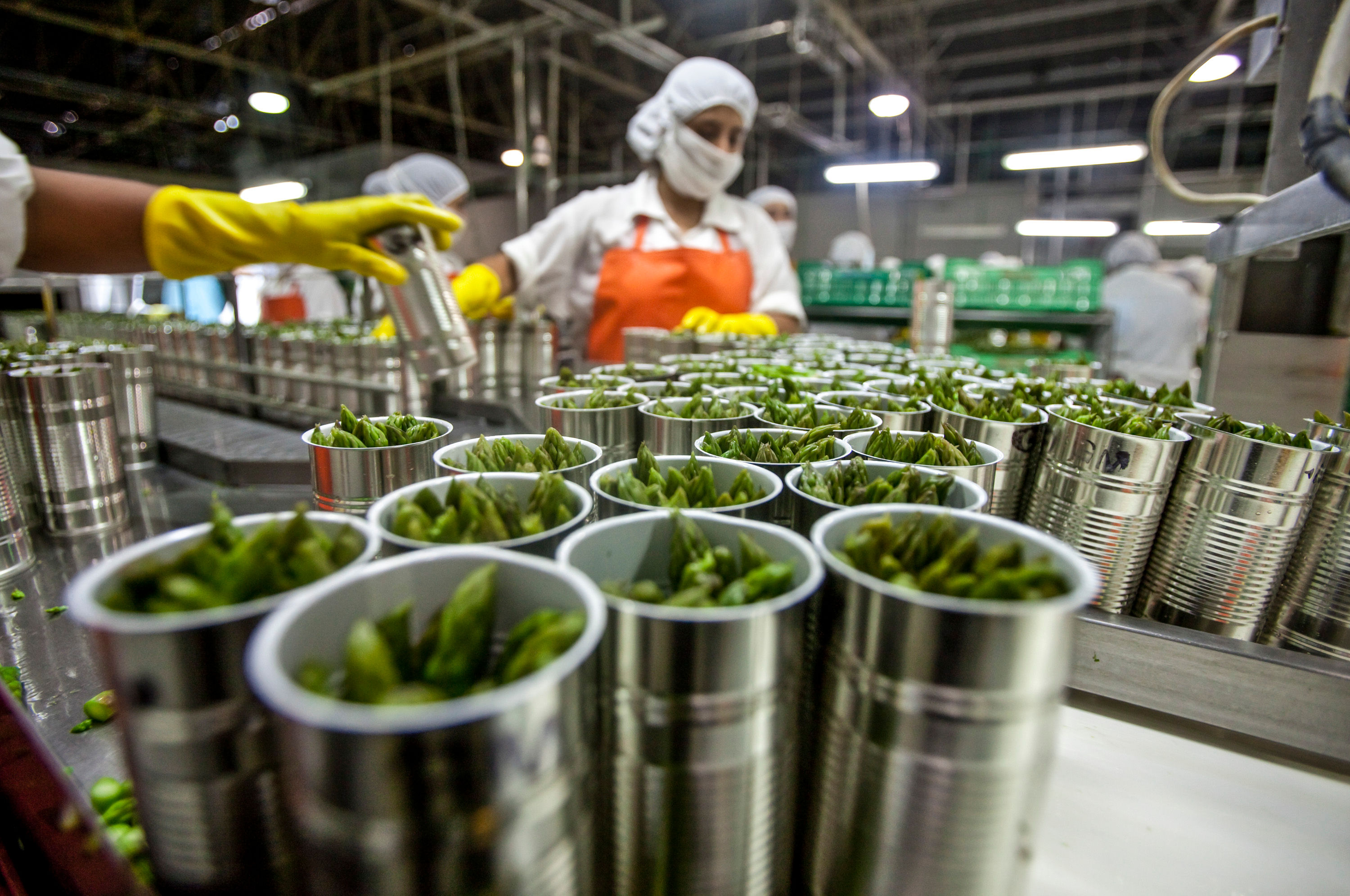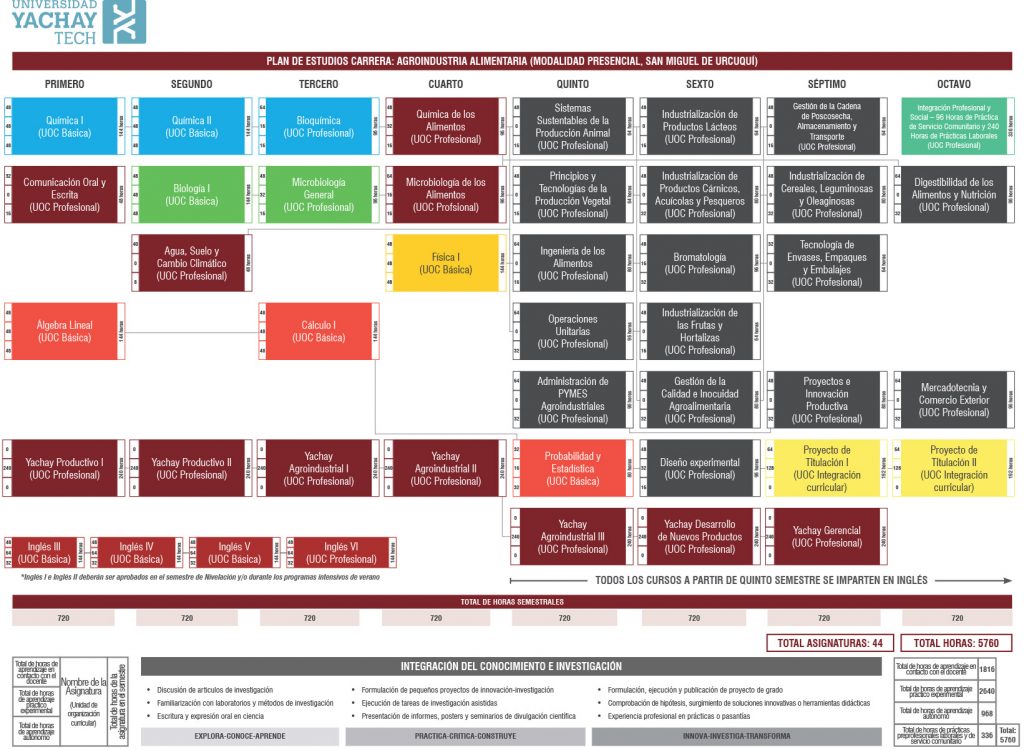Based on the need to generate applied science of excellence, Yachay Tech has developed an educational, productive and agro-industrial program based on research and practical knowledge, to provide an education of the highest quality. The Food Agroindustry major provides an offer that responds to the need to create added value in agricultural chains, strengthening pillars of knowledge such as food chemistry, food safety, microbiology, food processing, development of new products and applied food science all this with a high scientific rigor aimed at undergraduate students in their initial stage.
The Food Agroindustry major has a duration of 8 semesters or ordinary academic terms. During this period of time, our main objective will be to generate new knowledge and applications that contribute to the development of a “knowledge-based economy” under internationally recognized parameters, contributing to the academic and scientific strengthening of the country, directly influencing the change of the agricultural and agro-industrial productive matrix.

